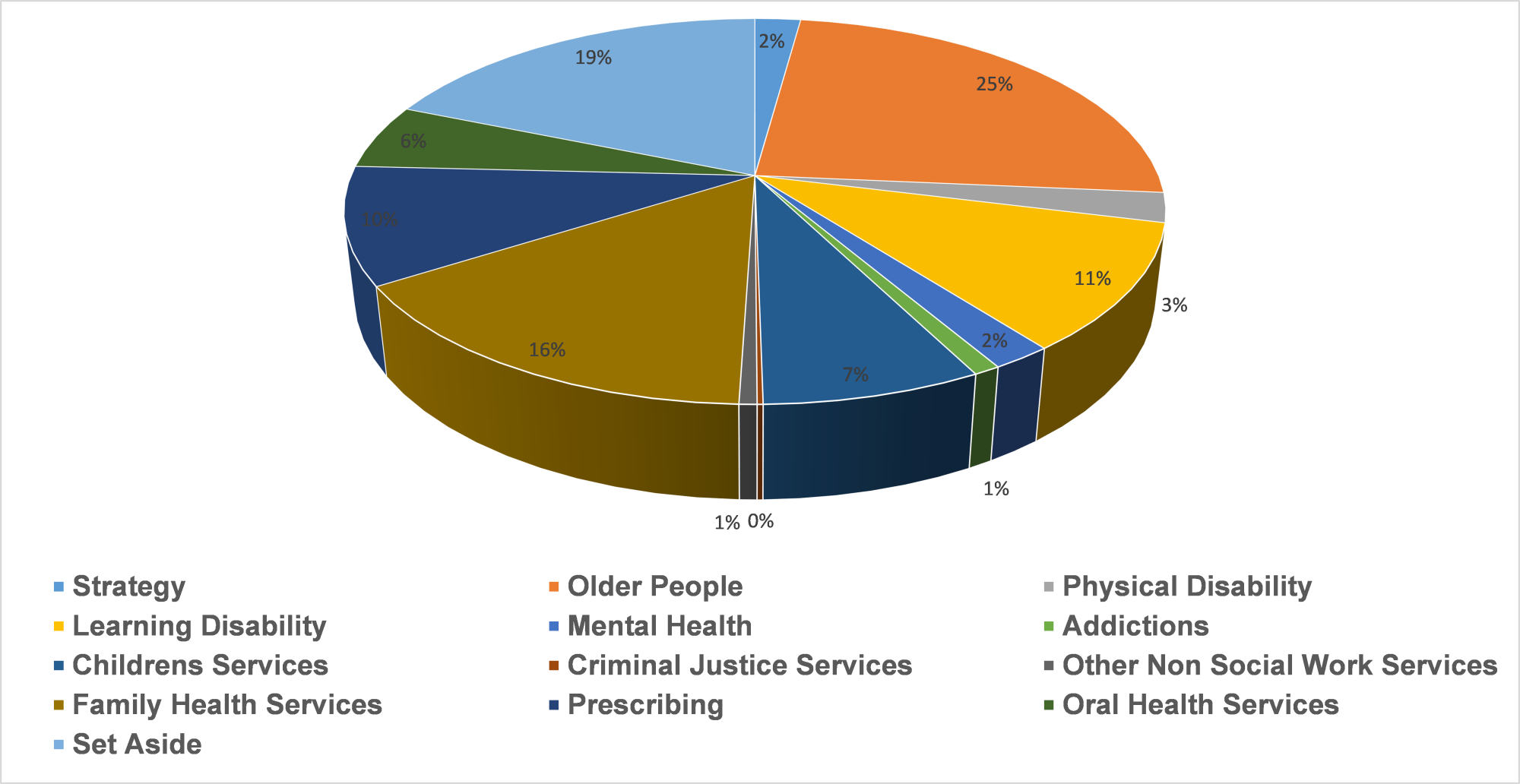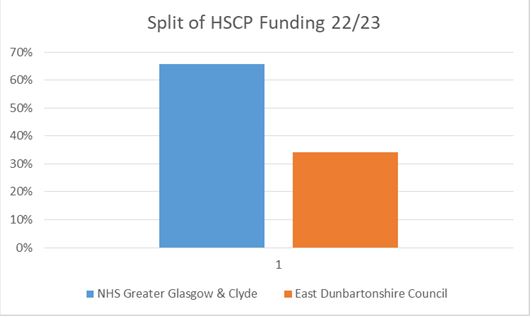This consultation has ended.
Thank you to everyone who took the time to fill out the survey. We are now collating and analysing your responses.
Your feedback will help determine the budget for 2024/25 in March 2024.
Overview
East Dunbartonshire Health & Social Care Partnership (HSCP) is responsible for delivering health and social care services to residents in East Dunbartonshire.
Community based services provided by the HSCP include:
- Assessment for access to social care
- Care at Home
- Care Homes
- Independent Living and Social Support
- District Nursing
- Rehabilitation
- Child and Adult Protection
- Aids and Adaptations
- Addiction and Mental Health Services
The HSCP also has responsibility for unplanned hospital care and in reducing the amount of time people spend within a hospital setting when this is not the best place for them.
The proportion of expenditure on health and social care services is set out below:

The HSCP is funded from contributions from NHS Greater Glasgow & Clyde and East Dunbartonshire Council, with some funding coming from the Scottish Government for specific priorities such as increasing the Scottish Living wage to staff in the independent sector, increasing free personal and nursing care allowances, and support to carers.

As with other public sector organisations, the HSCP is under extreme financial pressures with uplifts in pay for staff, increases in contractual payments for care services purchased from independent care providers, the cost of medicines, increasing demand for services due to increase / complexity of needs as people grow older or need support with their mental health, addiction or require to be kept safe from harm. This is all occurring against a backdrop of a flat cash settlement or limited additional funding to meet specific cost pressures. The HSCP is expected to have a financial gap of £4.1m to £4.5m each year for the next five years (a cumulative total of £17.2m) although detailed work for 2024/25 indicates the financial challenge will be in the region of £7.4m.
The HSCP is required to set a balanced budget each year and the Integration Joint Board will determine the budget for 2024/25 in March 2024.
We would like to hear your views on some budget principles for the coming year.
Principles
- Individuals who have the means should pay more for the services they receive directly
- Rigid application of the HSCP Fair Access to Community Care policy which determines that there should be an equity of access to services based on need
- Tighten the eligibility to receive services, and prioritise delivery of services to those with the highest levels of need
- If budget pressures ever exceed available funding, the HSCP will have to implement a recovery plan which may mean delays / reduction / pausing or cancellation of services
- A focus on prevention and ensuring individuals have more control over the care they receive which promotes independence,with the understanding that the benefits to this approach are longer term and difficult to determine impact
- Collaborative commissioning and working in partnership with care providers to ensure services are delivered efficiently and in the best way to effectively support individuals
- Services should be delivered digitally where appropriate
- Transformation and service redesign should deliver better outcomes for patients and service users and require to be delivered in the most efficient manner possible
